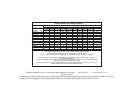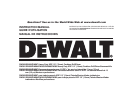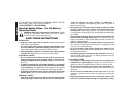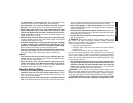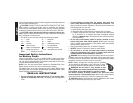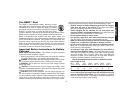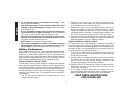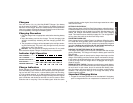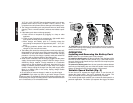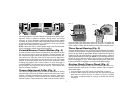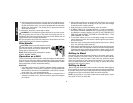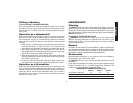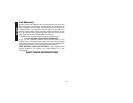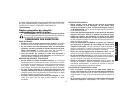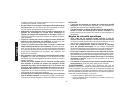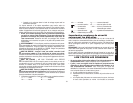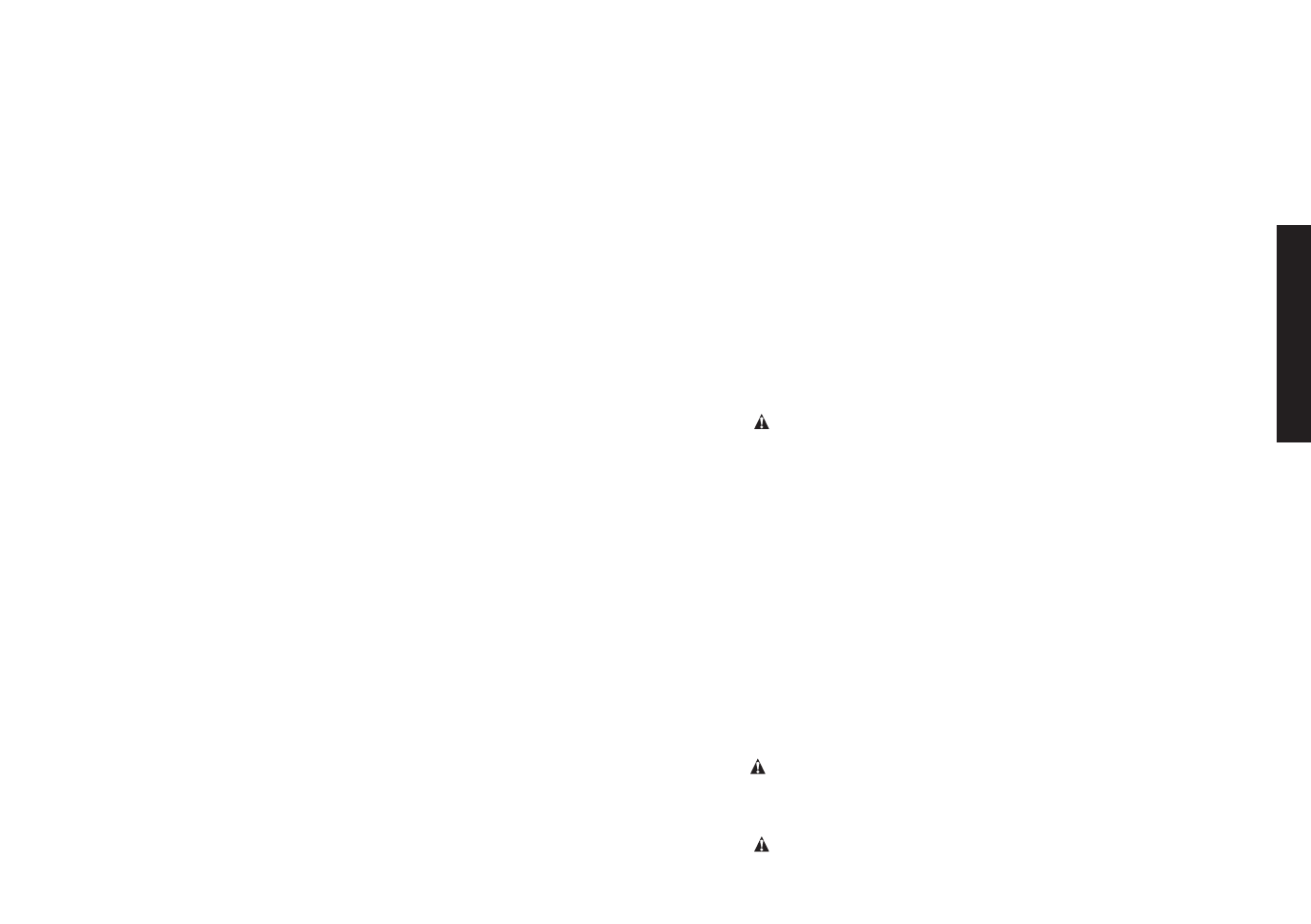
ing accessories, or storing the tool. Such preventative safety
measures reduce the risk of starting the tool accidentally.
• Store idle tools out of reach of children and other untrained
persons. Tools are dangerous in the hands of untrained users.
• When battery pack is not in use, keep it away from other metal
objects like: paper clips, coins, keys, nails, screws, or other
small metal objects that can make a connection from one ter-
minal to another. Shorting the battery terminals together may
cause sparks, burns, or a fire.
• Maintain tools with care. Keep cutting tools sharp and clean.
Properly maintained tools, with sharp cutting edges are less likely
to bind and are easier to control.
• Check for misalignment or binding of moving parts, breakage
of parts, and any other condition that may affect the tools
operation. If damaged, have the tool serviced before using.
Many accidents are caused by poorly maintained tools.
• Use only accessories that are recommended by the manufac-
turer for your model. Accessories that may be suitable for one
tool, may create a risk of injury when used on another tool.
SERVICE
• Tool service must be performed only by qualified repair per-
sonnel. Service or maintenance performed by unqualified person-
nel may result in a risk of injury.
• When servicing a tool, use only identical replacement parts.
Follow instructions in the Maintenance section of this manu-
al. Use of unauthorized parts or failure to follow Maintenance
Instructions may create a risk of shock or injury.
Specific Safety Rules
• Hold tool by insulated gripping surfaces when performing an
operation where the tool may contact hidden wiring. Contact
with a “live” wire will also make exposed metal parts of the tool
“live” and shock the operator.
• Wear ear protectors when hammering for extented periods of
time. Prolonged exposure to high intensity noise can cause hear-
1
English
ing loss. Temporary hearing loss or serious ear drum damage may
result from high sound levels generated by hammer drilling.
• Wear safety goggles or other eye protection. Hammering and
drilling operations cause chips to fly. Flying particles can cause per-
manent eye damage.
• Always use the side handle supplied with the tool. Keep a firm
grip on the tool at all times. Do not attempt to operate this tool with-
out holding it with both hands.
• Hammer bits and tools get hot during operation. Wear gloves
when touching them.
WARNING: Some dust created by power sanding, sawing, grind-
ing, drilling, and other construction activities contains chemicals
known to cause cancer, birth defects or other reproductive harm.
Some examples of these chemicals are:
• lead from lead-based paints,
• crystalline silica from bricks and cement and other masonry
products, and
• arsenic and chromium from chemically-treated lumber.
Your risk from these exposures varies, depending on how often you
do this type of work. To reduce your exposure to these chemicals:
work in a well ventilated area, and work with approved safety equip-
ment, such as those dust masks that are specially designed to filter
out microscopic particles.
• Avoid prolonged contact with dust from power sanding, saw-
ing, grinding, drilling, and other construction activities. Wear
protective clothing and wash exposed areas with soap and
water. Allowing dust to get into your mouth, eyes, or lay on the skin
may promote absorption of harmful chemicals.
WARNING: Use of this tool can generate and/or disburse dust,
which may cause serious and permanent respiratory or other injury.
Always use NIOSH/OSHA approved respiratory protection appropri-
ate for the dust exposure. Direct particles away from face and body.
CAUTION: When not in use, place tool on its side on a stable
surface where it will not cause a tripping or falling hazard. Some



